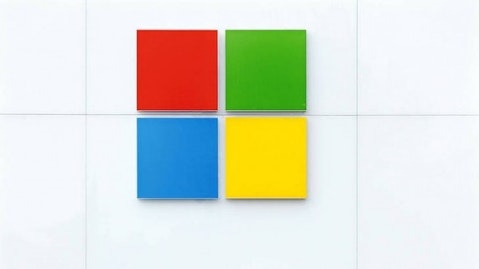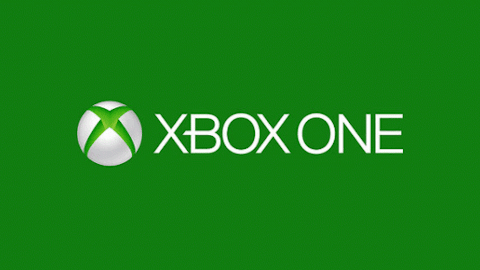Microsoft Corporation (NASDAQ:MSFT)’s Windows Phone and Research In Motion Ltd (NASDAQ:BBRY)’s BB10 are likely headed for extinction. The market has settled on Apple Inc. (NASDAQ:AAPL)’s iOS and Google Inc (NASDAQ:GOOG)’s Android, and that’s not going to change for the foreseeable future.
Android and iOS fully satisfy the smartphone market. iOS offers the superior, curated experience, while Android offers customization at the high-end and bargain prices at the low-end.
This balance could be shaken by a revolutionary new player — unfortunately, neither BB10 nor Windows Phone fits the bill.
The mobile OS duopoly
As I’ve written previously, the mobile operating system market has settled into a duopoly. Combined, iOS and Android account for over 92% of the handset market. Windows Phone, BlackBerry, and Symbian make up the remaining 8%.
Both iOS and Android are well established incumbents. Although BB10 may offer superior multitasking, it lacks the large app and media ecosystem enjoyed by Android and iOS.
Likewise, Windows Phone may have a great tile screen, but it doesn’t matter if one needs a program that the Windows Phone Store doesn’t offer.
Can Windows Phone supplant iOS?
Some, like Venture Beat’s John Koetsier, have postulated that — based on Windows Phone’s tremendous growth — Microsoft Corporation (NASDAQ:MSFT)’s handset operating system could usurp Apple for second place. Koetsier notes that Nokia Corporation (ADR) (NYSE:NOK)’s transition to an all-smartphone lineup could help.
To be sure, Windows Phone’s market share has tripled in the last year, and the platform has seen strong growth in some specific regions (various parts of Europe). But there’s no reason to expect that growth to continue. Simply put, Windows Phone offers nothing major that iOS and Android don’t already have.
Rather, what Windows Phone does have is the Metro interface, Microsoft Office, and solid mid-tier phones.
In theory, having a unified Metro interface across all of one’s devices — desktop, tablet and smartphone — should provide a great degree of consistency. Unfortunately, the Metro interface has not been well received — while it may work well on smartphones, it’s been the primary catalyst behind the rampant Windows 8 criticism.
As for Office — Microsoft Corporation (NASDAQ:MSFT) has already brought it to the iPhone, making this Windows Phone advantage no longer an exclusive. Moreover, few people are likely editing documents on their smartphone, so Office access does not seem like a strong selling point.
Finally, while Nokia’s mid-tier phones might be best in their class, significant Android and iOS devices are coming to fill this market niche. Both Motorola’s Moto X and Apple’s rumored plastic iPhone are expected to appeal consumers in this category.
BlackBerry’s failed gambit
In response to its fall from grace, Research In Motion Ltd (NASDAQ:BBRY) replaced its CEO, dug in, and dedicated all of the company’s resources towards the development of BB10. The new operating system has been widely praised — unfortunately, it’s just too little, too late.
Research In Motion Ltd (NASDAQ:BBRY) has sold its newest operating system as being the ideal solution for corporate workers — able to double both as a work phone and a personal phone. Unfortunately, it’s hard to fulfill the role of personal phone when there are few entertainment apps.
As for corporate use, numerous companies have made the switch away from BlackBerry, while bring your own device (BYOD) is a growing trend. Even Research In Motion Ltd (NASDAQ:BBRY)’s vaunted security edge has been rendered irrelevant — the Pentagon has approved iOS devices and some Samsung Android devices for military use.
Research In Motion Ltd (NASDAQ:BBRY) has ported its Secure Workspace to Android and iOS, and has effectively pulled out of the tablet market. The company seems to be acknowledging BB10’s failure.
The evolution of the smartphone market
In response to my original piece, WMPoweruser’s Surur notes that the smartphone landscape has been through several transitions, and that new players have repeatedly risen up to unseat the establishment a number of times.
“The clear truth is that nothing is forever, the smartphone market has always been very dynamic (as previous leaders such as Palm, Blackberry, Symbian, Windows Mobile and now iOS found out) and in 5 years time we will probably have some-one else sitting pretty and thinking they will rein for the next 1000 years.”
Here, the appropriate comparison seems to be the PC in the 1980s and 1990s. In the 80s, there were numerous competing PC operating systems, and a great degree of dynamism. But by the late 90s, when the PC had finally gone mainstream, Windows had established itself as the dominant player, with Apple’s Mac having a large minority position.
Prior mobile operating systems (Palm, BlackBerry, Symbian) never caught on to the extent of today’s Android and iOS. At its peak in 2009, about 250 million Symbian devices had been shipped. A large number to be sure, but it hardly compares to the 2 billion Android devices expected by the end of next year.
The next revolution
That doesn’t mean that iOS and Android could never be unseated. Apple was able to unseat BlackBerry and Symbian by introducing something revolutionary — a great touch screen and a robust app ecosystem.
Google added to that by offering a similar operating system that was far cheaper and more customizable.
If a new player came along with something equally as revolutionary, they could easily disrupt the current market. Yet, neither BB10 nor Windows Phone bring anything noteworthy to the table.
In time, it is likely that both platforms will die out.
Joe Kurtz has no position in any stocks mentioned. The Motley Fool recommends Apple and Google. The Motley Fool owns shares of Apple, Google, and Microsoft Corporation (NASDAQ:MSFT).
The article Windows Phone and BB10 Aren’t Going to Survive originally appeared on Fool.com.
Copyright © 1995 – 2013 The Motley Fool, LLC. All rights reserved. The Motley Fool has a disclosure policy.






